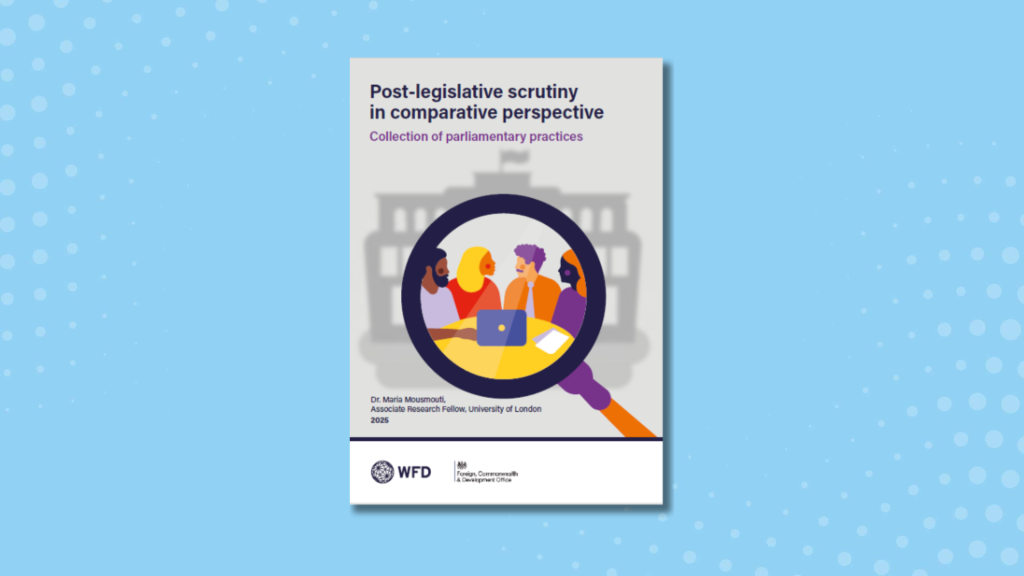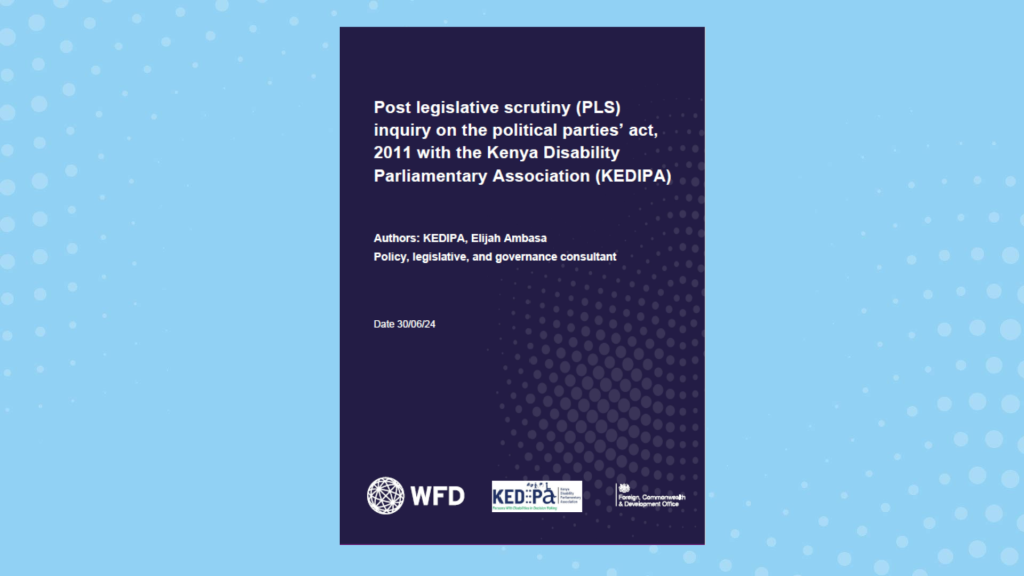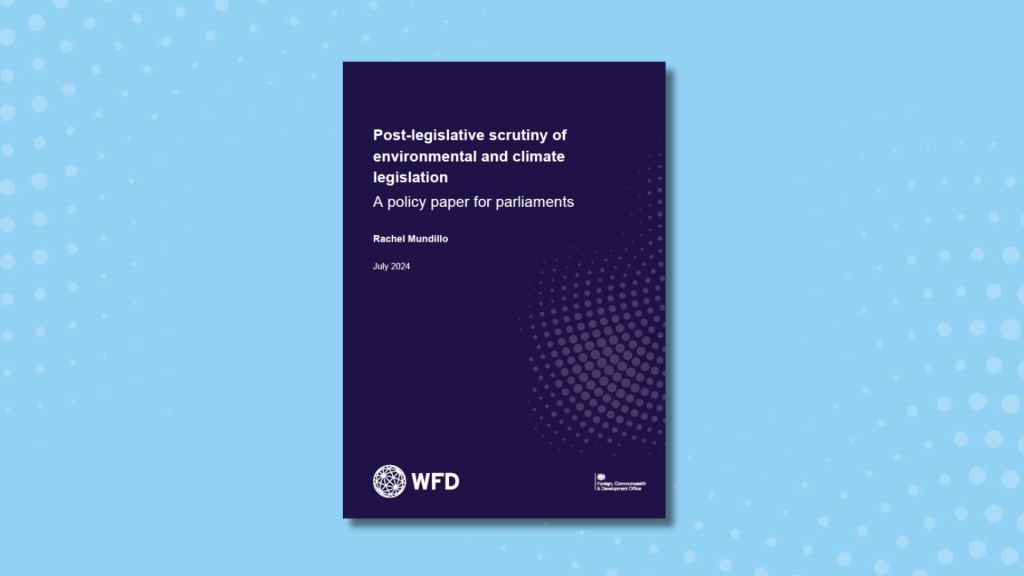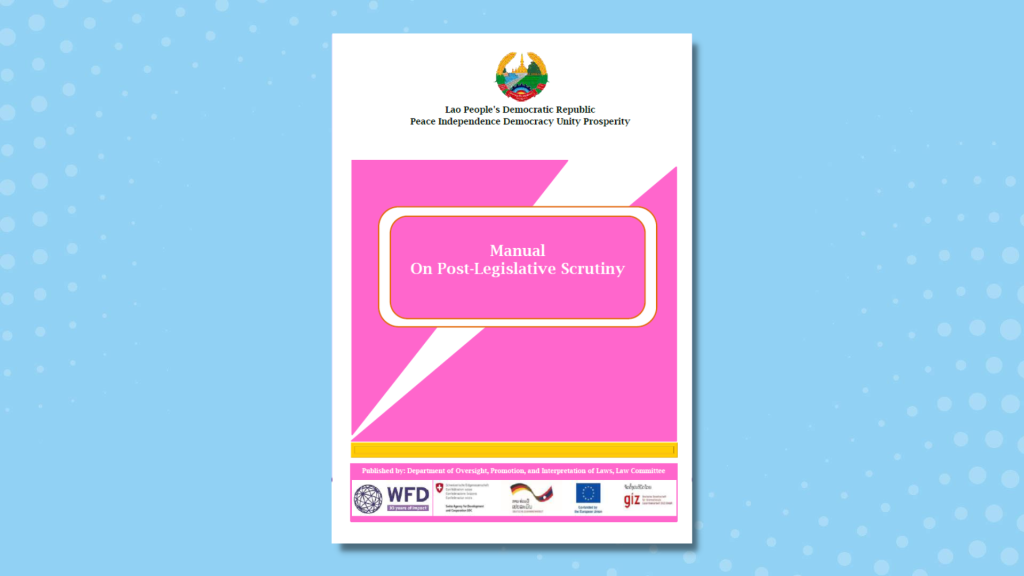We are thrilled to announce the launch of our brand-new course on legislative scrutiny and technology.
This course explores the theory and practice of legislative scrutiny and explores the potential role of technology to augment these efforts. With a special emphasis on both ex-ante and ex-post impact assessments of legislation, the course examines how the legislative and executive branches of government can upgrade the quality of legislative scrutiny and leverage technology to improve feedback loops, implementation monitoring, and citizen engagement.
Drawing on recent parliamentary innovations and expert case studies, this course is designed to equip policy and parliamentary actors with the knowledge and tools to lead innovation in a fast-changing governance landscape.
Course information
Register for the course
Register by 30 September 2025 to receive an early booking discount.

What is post-legislative scrutiny?
Post-legislative scrutiny (PLS) is the systematic process where parliament monitors whether the laws it has passed are implemented as intended and where parliament evaluates if the laws have the expected impact. PLS is increasingly recognised as an important dimension within the oversight role and the legislative role of parliament and an integral part of the legislative cycle.
Over the past few years, WFD has supported the introduction, piloting and institutionalization of PLS in a large group of interested parliaments and assemblies and prepared research, guidance and other knowledge products.
Interested PLS practitioners or champions can request to join the Global Community of Practice on PLS through the LinkedIn Specialist Group. Join the LinkedIn Community of Practice.
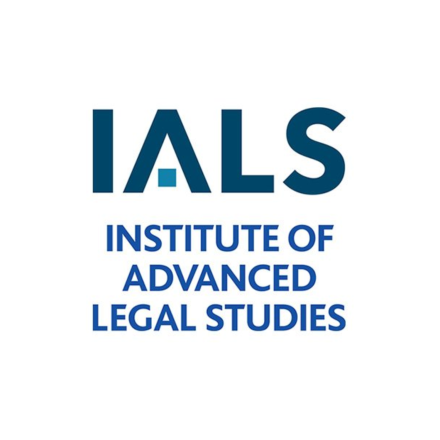
The course is organised by Westminster Foundation for Democracy and the University of London’s Institute of Advanced Legal Studies (IALS), in partnership with the Political Tech Summit and Popvox Foundation.

